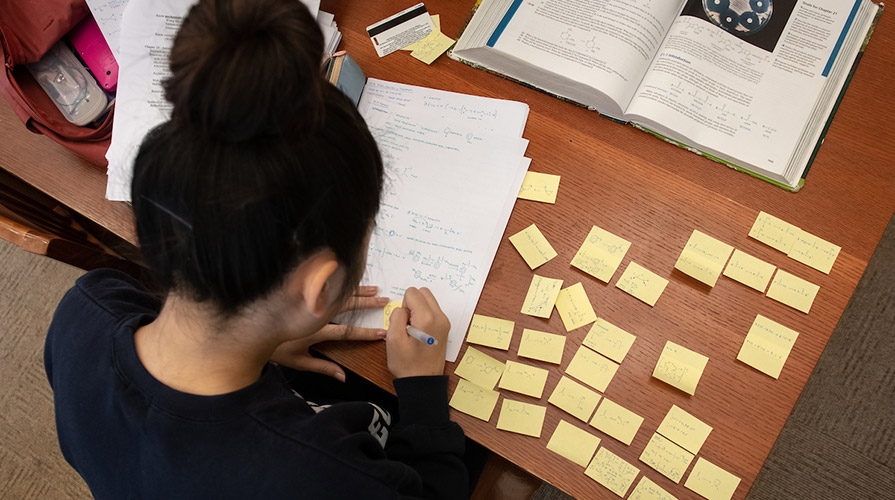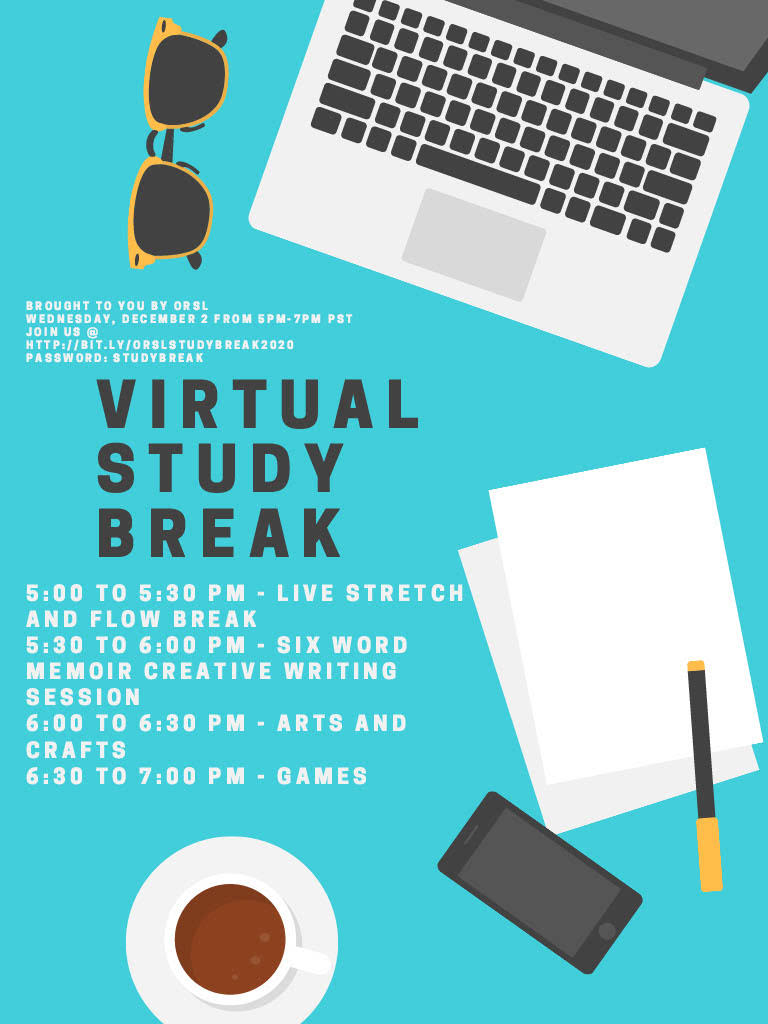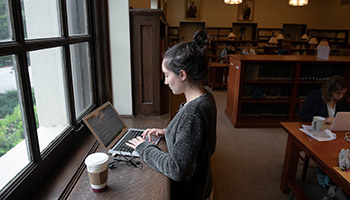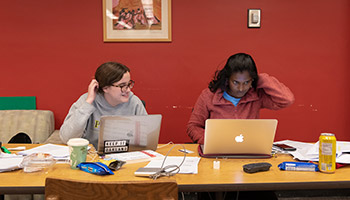
Please see the following resources for studying and testing remotely.
NOTE: For the Arts and Crafts session students will need the following supplies:
- 1/2 cup of flour
- 1/4 cup of salt
- 1/4 tablespoon of vegetable oil
- 1/4 cup of water
- food coloring of Kool Aid (for decorating--optional)
- 1 bowl
- 1 fork or something to stir
- paper
- scissors
- crayons, colored pencils, pens to decorate (optional)
And, from 6:30 to 7 pm, students will need their smartphones to participate in virtual games.
Zoom: bit.ly/orslstudybreak2020 | Password: studybreak
7 tips for Studying During the Pandemic
During this unprecedented time, when people around the globe are finding themselves homebound for weeks at a time, things have to be done differently. Here are a few tips to help out during this challenging times.
How to Self-Study During The Quarantine
With social distancing becoming today’s new normal, the way we live our life must necessarily undergo some drastic changes while, at the same time, we continue to move forward with our essential work. This is a great time for college students to focus more on independent study to keep up with their college and research work.
How to Study Effectively: Science-Based Skills
How to study effectively with 6 essential skills. Boost your study performance with strategies recommended by science - The ANSWER Method.
Spaced Practice: Student Tip Sheet
Cramming involves studying large amounts of information in one long session, e.g., studying for 5 hours the night before an exam. The opposite of cramming is spaced practice (also known as distributed practice), which refers to a study schedule in which you divide your study time into shorter, separate study periods.
Self-Testing: Student Tip Sheet
Self-testing is a learning strategy in which you first study material and then try to recall as much as you can, or answer specific questions, without looking back at the material.
National Emergency Library
A free collection of e-books that supports emergency remote teaching, research activities, independent scholarship, and intellectual stimulation while universities, schools, training centers, and libraries are closed.



